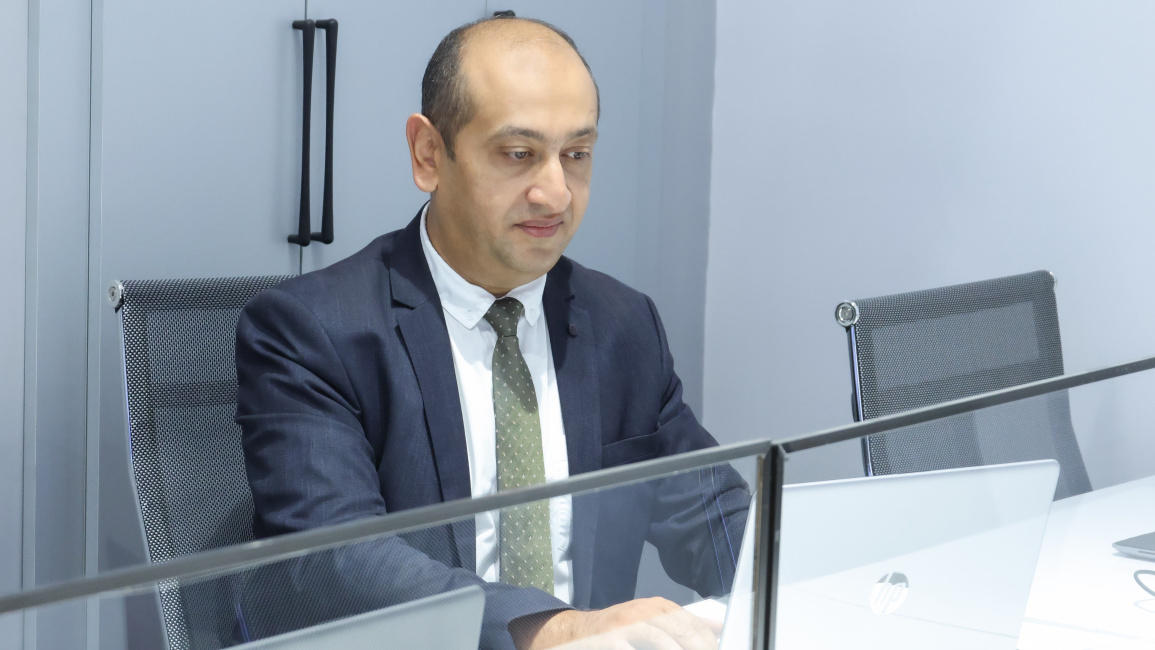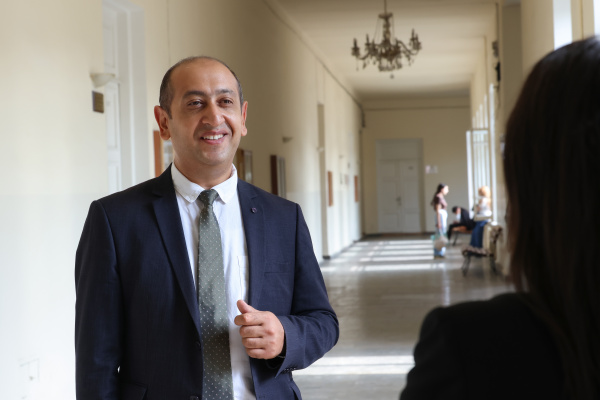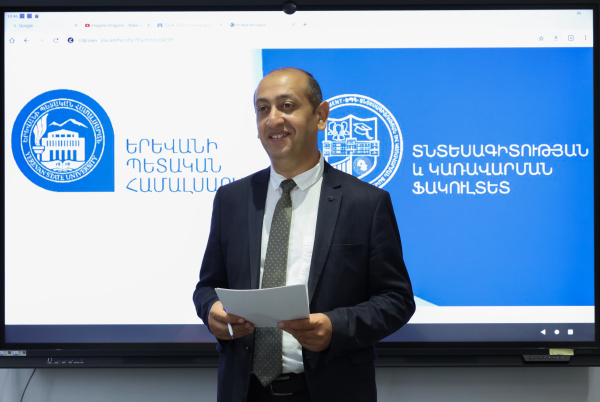October 02, 2024 | 15:15
Education
Research
YSU associate professor's research addresses environmental challenges in food system
Associate Professor, Ph.D. Vardan Aleksanyan, Deputy Dean of the YSU Faculty of Economics and Management, has focused his research on the significant environmental challenges faced by the food system in recent years. In the context of the circular economy, he has identified potential solutions and proposed strategies to address these issues. The findings of his research are detailed in a scientific article published in the esteemed "International Journal of Sustainable Development & World Ecology" (Scopus Q1).

In an interview with us, YSU lecturer Vardan Aleksanyan discussed the relevance of his article titled "Hierarchy and Cause–Effect Relationship of Barriers to Circular Business Models in Food Systems: A Fuzzy-DEMATEL Analysis in the Berlin-Brandenburg Area in Germany." He highlighted the significance of the topics addressed in the research, as well as other related questions.
- How is this article relevant today?
- Currently, food systems face significant environmental challenges, highlighting the need for a shift toward sustainability and resource efficiency. Implementing circular economy principles and adopting new business models can greatly enhance the sustainability of food systems. These approaches tackle major issues in the linear economic model, such as excessive food loss and waste, resource depletion, and market volatility. However, various barriers hinder the adoption of circular food systems.

- Why is this topic significant?
- The concept of the circular economy, as a sustainable alternative to the traditional linear economy, is gaining global recognition. It aims to minimize waste, use resources efficiently, and develop closed-loop food supply chains to recover materials and energy. While the development of circular business models in Armenia is still in its early stages, several important initiatives are beginning to emerge. There are numerous opportunities for advancing circular business models in Armenia, including the creation of new jobs, economic growth, conservation of natural resources, environmental protection, and the expansion of international cooperation and investment.
The article presents the main obstacles to the introduction of circular business models, and overcoming these obstacles is crucial through the study of international best practices in the food system of the Republic of Armenia. The results of the research can be used by private institutions for developing appropriate strategies, as well as in shaping public policy directions.
The article was published in co-authorship with Davit Markosyan, a postgraduate student at the National Agrarian University of Armenia, and Dr. Philipp Grundmann from Humboldt University of Berlin.
- What methods were used in your research?
- The "Fuzzy Decision-Making Trial and Evaluation Laboratory-DEMATEL" model is used in the article, which helps to analyze the mutual effects of factors in complex systems. This method helped to reveal the strength of the impact of obstacles and the cause-and-effect relationships among them. The research was based on case studies and expert assessments. While this model has been applied in many studies related to the circular economy, its application in food systems is quite limited. Notably, this method was used in conducting research on the food system in the Republic of Armenia for the first time.
- What results were obtained from the research?
- As a result of the research, the hierarchical structure of the identified obstacles and their cause-and-effect relationships were revealed using the Fuzzy DEMATEL model. The main obstacles include unsustainable product design, a lack of waste management infrastructure, insufficient quantity and quality of resources, and lack of collaboration in the supply chain. Additionally, four primary causes and four consequent barriers related to market development, financial and technological availability, knowledge management, and the institutional sector were identified. Weak policies and their inadequate evaluation and monitoring are seen as the principal obstacles to the introduction of the system.
This research has both theoretical and practical implications. In practice, it can be used by production entities and policymakers to promote the introduction of circular food systems through innovative business models. Based on the findings, several proposals were presented in the article. Specifically, we emphasize the need for cooperation among businesses and various interested groups to ensure effective waste management, generate new by-products and value from waste, and enhance resource efficiency. Furthermore, policymakers must commit to developing effective management strategies that not only address environmental issues but also meet the demands of organizations and consumers.

- Does the article fill a gap in the research studies of food systems?
- Definitely. The methodology presented in the article has never been used in Armenia or in the international arena. Both quantitative and qualitative methods were applied in the research, adding significant scientific value to the article.
- Mr. Aleksanyan, do you have plans to publish new articles in the near future?
- This article is the second scientific work published this year; the other was published in a Scopus Q3 journal. A scientist engaged in active research never stops and continually works on new projects.

